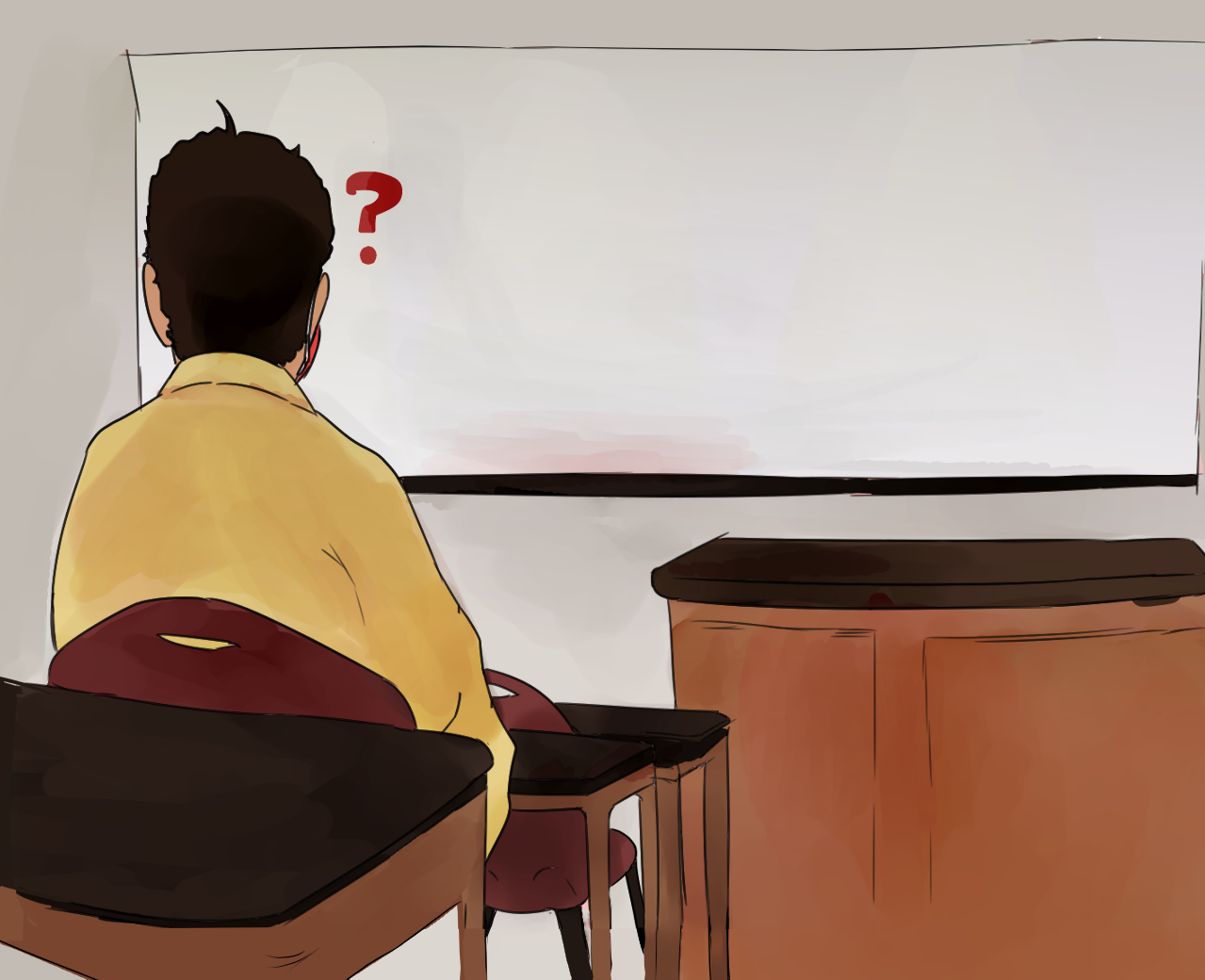Original art by Jordan Frazier.
The Covid-19 pandemic has been going on for almost two years now. However, the world has slowly started to open up over the months. Here in Fremont, schools started back in-person this year, but things have definitely not been running smoothly. There are currently staff shortages in schools in Fremont and across the country due to the pandemic. Many teachers are getting sick with Covid and there are not enough substitutes to fill their positions. The omicron variant has only made this worse. According to the CDC, “Omicron has been detected in most states and territories and is rapidly increasing the proportion of COVID-19 cases it is causing.”
Many teachers at Washington are having to substitute for other classes during their prep period when teachers are out. Mrs. Songponnopachon, a resource teacher, sees staff shortages as a problem at Washington. She has had to sub for other classes three to four times a week in the last two months. “I’m losing my prep,” says Mrs. Song. “It’s now only one or two days a week, so there is kind of more pressure on me to get things done outside of the work day, or to come in early or stay later since I’m covering for other people.”
Mrs. Song recognizes that the state is limited on what they are able to do, as each district is separate. However, she believes that the district doesn’t make it very easy to get substitute teachers. “People also don’t want to be in spaces with so many other people right now, so I think there’s many different aspects to this. But unfortunately, it’s not just a Washington problem, it’s the whole district’s problem,” says Mrs. Song. She believes that a way to approve more substitutes faster would be helpful. Mrs. Song doesn’t see the staffing situation getting better any time this school year, but perhaps it will by next school year if the Covid situation improves. “The staff also recognizes that it’s a problem,” she says. “There’s definitely been a lot of conversation around staff about the shortages and what other colleagues can do to help us if they are going to be out.”
Mrs. Song has substituted repeatedly for some of the same classes. She sees how Washington students are affected by the staff shortages. It can be difficult for students to not have their teachers in class for long periods of time, especially when there are different substitutes. This is disruptive to students’ education, and it can be worrisome for students when their teachers are out for so long.
Joline Edwards Heaivilin, a senior at Washington, is in Mr. MacLeod’s AP Government class. Last semester Mr. MacLeod was not present for many days, and he is not here this semester. The classes have had various substitutes and teachers this school year, and Joline believes that staff shortages are definitely an inconvenience for the students. High school students are capable of teaching themselves the class material to some extent. However, it is much more difficult than being taught by someone who is familiar with the subject.
“We’re worried,” says Edwards Heaivilin. “Am I going to pass this AP test? Am I going to get a good grade and am I going to know this material well enough for next year’s level of the subject?”
“I think it affects the teachers more,” adds Joline. She understands that it must be difficult and exhausting for teachers to do their own work and also cover for other classes. “A lot of teachers don’t really get credit,” she says. “Teachers deserve more value for how much they do.”
Over time the demographic of teachers has shifted. Joline recognizes that younger people aren’t encouraged to become teachers. “Teaching seems like something that people end up doing and discovering that they like to do rather than something that they’re told is a good option,” she says. This is partly due to societal views of teachers and education.
In response to the staff shortages, the state of California is temporarily making it easier to get new substitute teachers. On Tuesday, January 11th, California governor Gavin Newsom, signed an executive order to make this possible. More specifically, the executive order will make it easier to train and hire new substitutes, shorten the time retired teachers have to wait before becoming substitutes, and make it so that substitute teachers can stay at schools for longer periods of time. The order expires on March 31, 2022. So, this solution is not long term, but hopefully it will relieve the stress of the shortages for staff and students for some time.
Nishika Datla is a junior at Washington High School. She was born in Hayward, but has lived in Fremont her entire life. This is her third year with The Hatchet, and she is the News Editor and the website manager this year. She is interested in covering stories about the arts, activism, and important events in both the Washington community and the world. Nishika enjoys drawing, crocheting, playing badminton, and hanging out with her friends. In the future she hopes to go to college and become a scientist.

